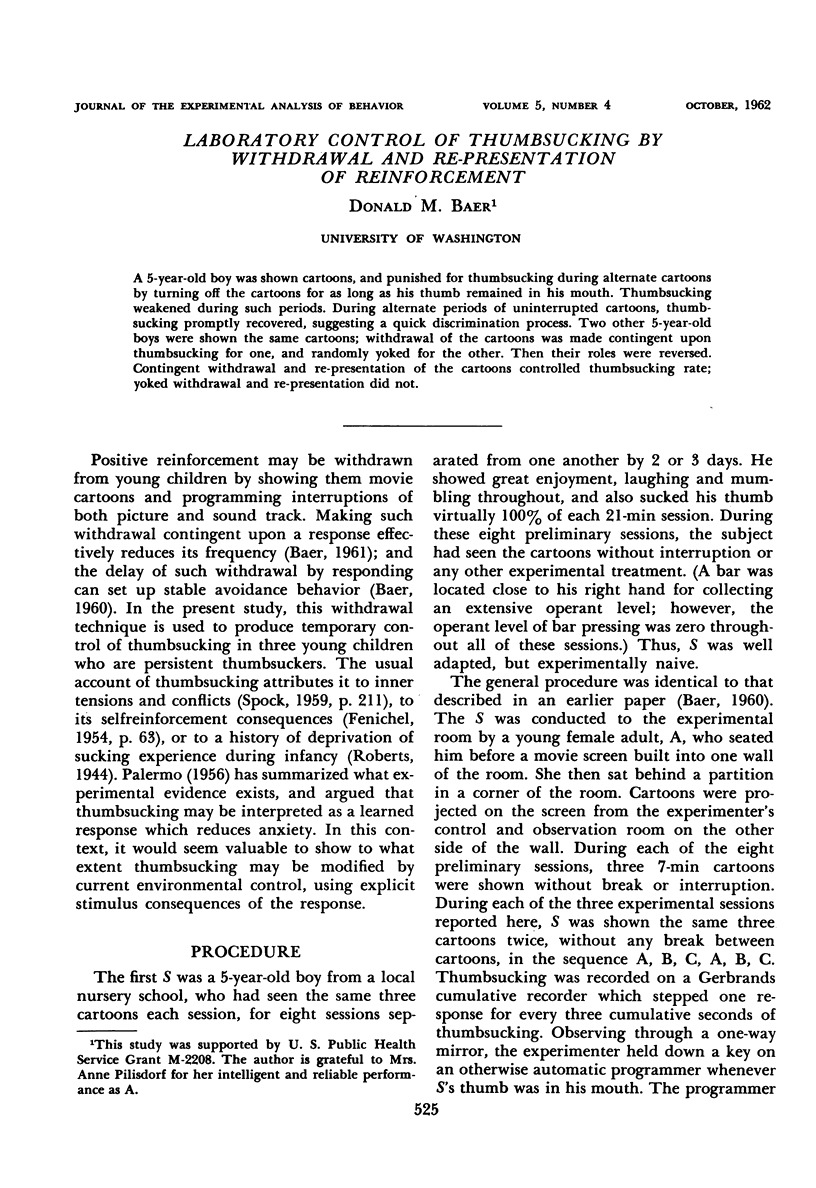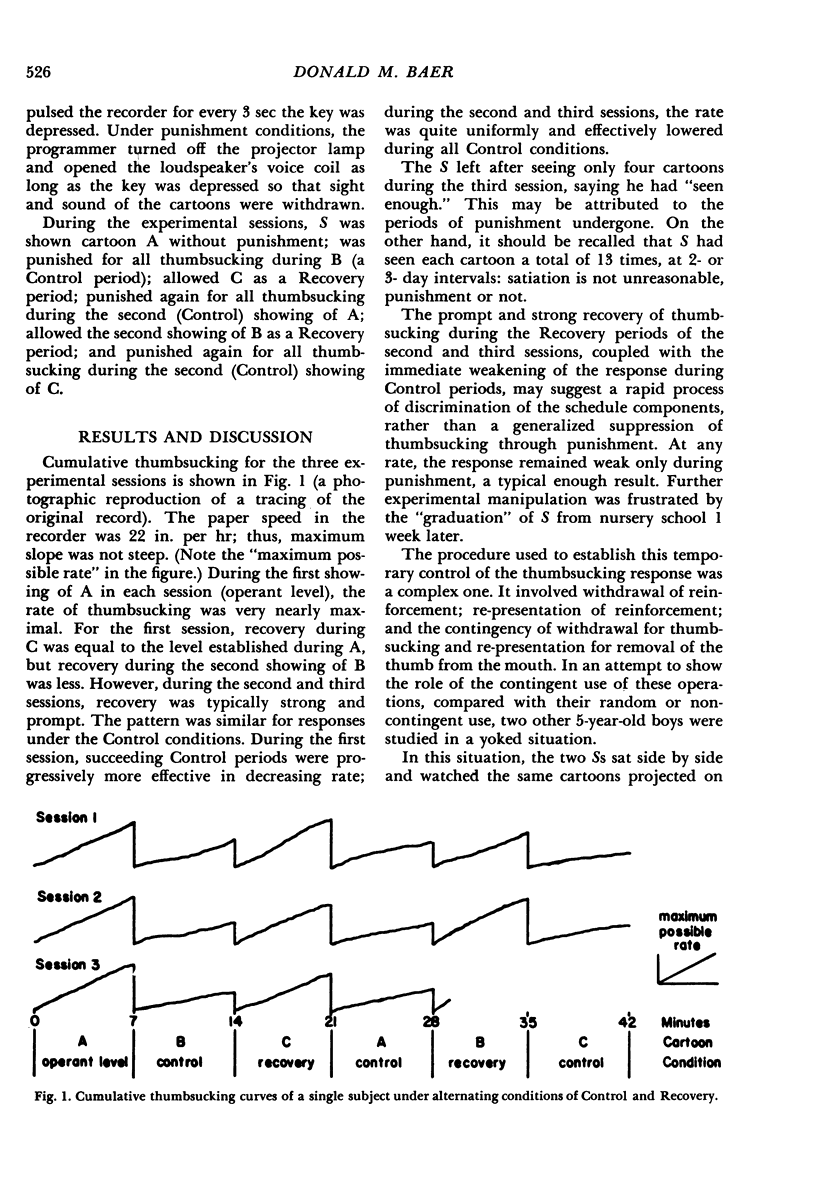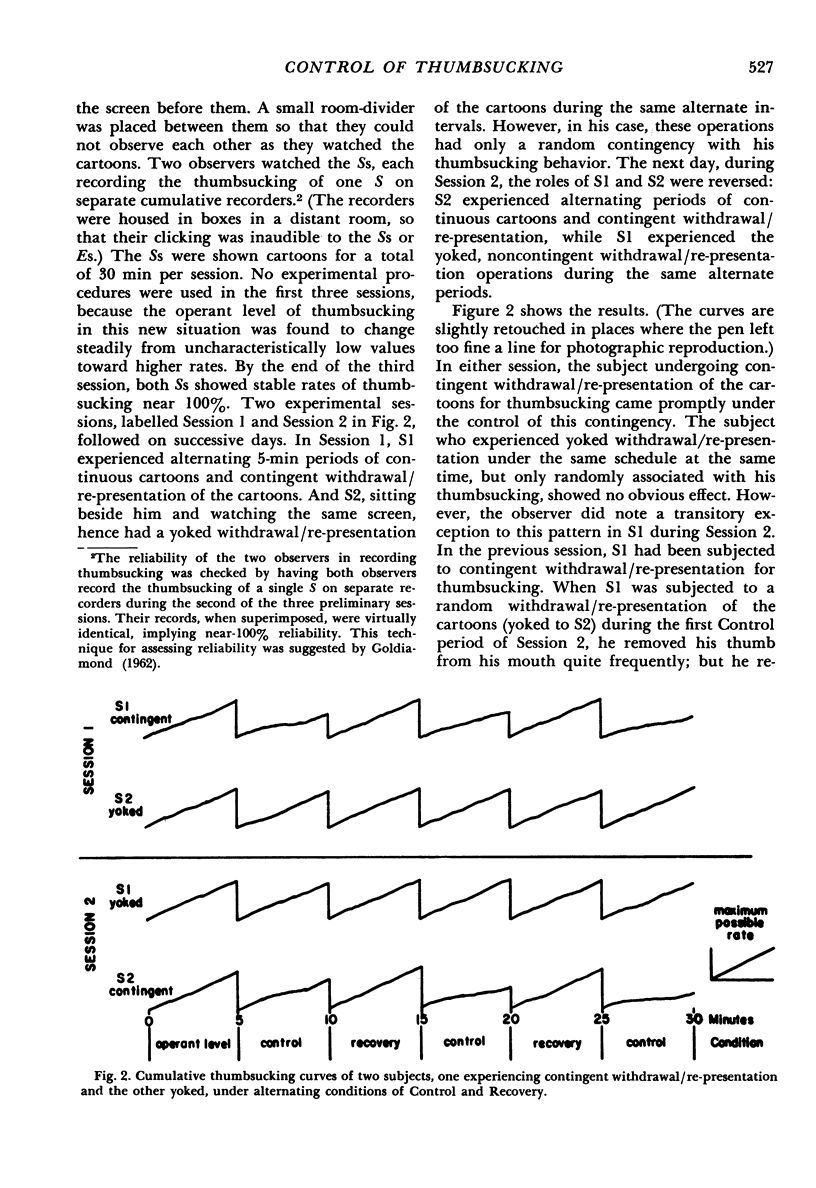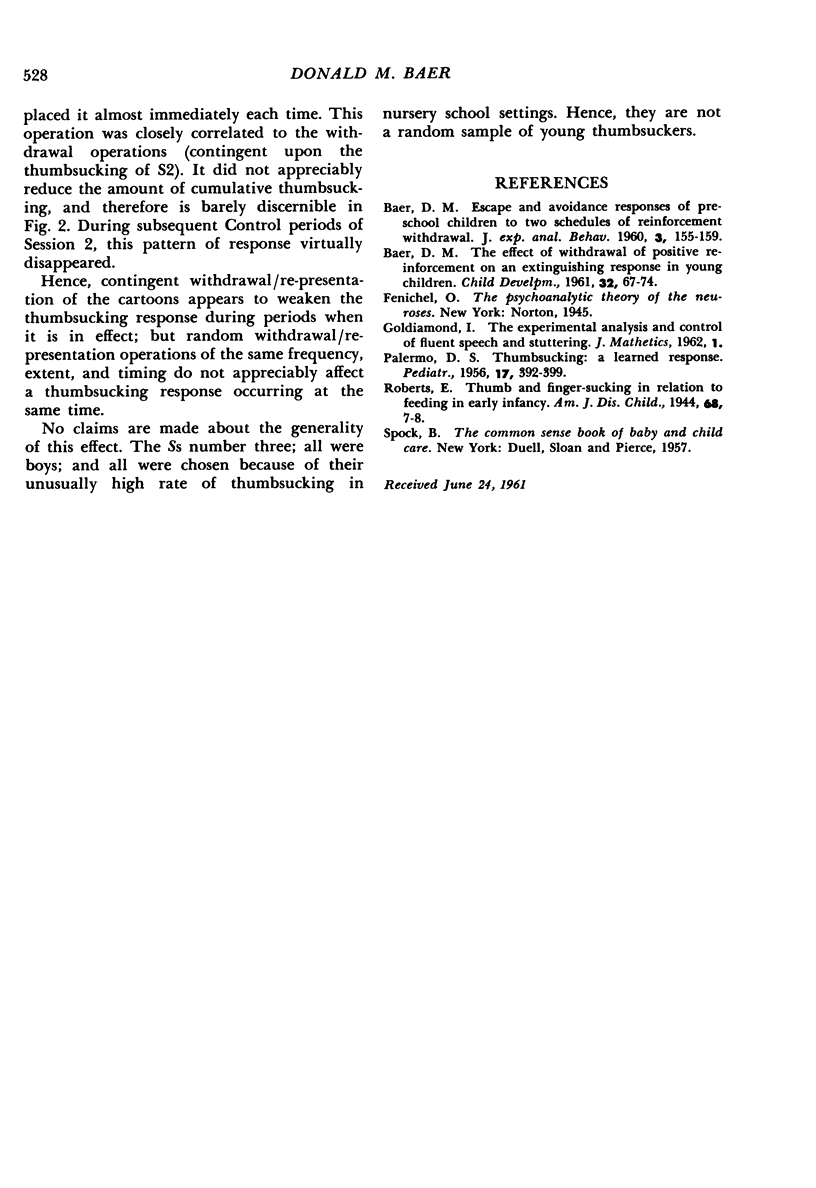Abstract
A 5-year-old boy was shown cartoons, and punished for thumbsucking during alternate cartoons by turning off the cartoons for as long as his thumb remained in his mouth. Thumbsucking weakened during such periods. During alternate periods of uninterrupted cartoons, thumbsucking promptly recovered, suggesting a quick discrimination process. Two other 5-year-old boys were shown the same cartoons; withdrawal of the cartoons was made contingent upon thumbsucking for one, and randomly yoked for the other. Then their roles were reversed. Contingent withdrawal and re-presentation of the cartoons controlled thumbsucking rate; yoked withdrawal and re-presentation did not.
Full text
PDF



Selected References
These references are in PubMed. This may not be the complete list of references from this article.
- BAER D. M. Effect of withdrawal of positive reinforcement on an extinguishing response in young children. Child Dev. 1961 Mar;32:67–74. doi: 10.1111/j.1467-8624.1961.tb05004.x. [DOI] [PubMed] [Google Scholar]
- BAER D. M. Escape and avoidance response of pre-school children to two schedules of reinforcement withdrawal. J Exp Anal Behav. 1960 Apr;3:155–159. doi: 10.1901/jeab.1960.3-155. [DOI] [PMC free article] [PubMed] [Google Scholar]
- PALERMO D. S. Thumbsucking: a learned response. Pediatrics. 1956 Mar;17(3):392–399. [PubMed] [Google Scholar]


